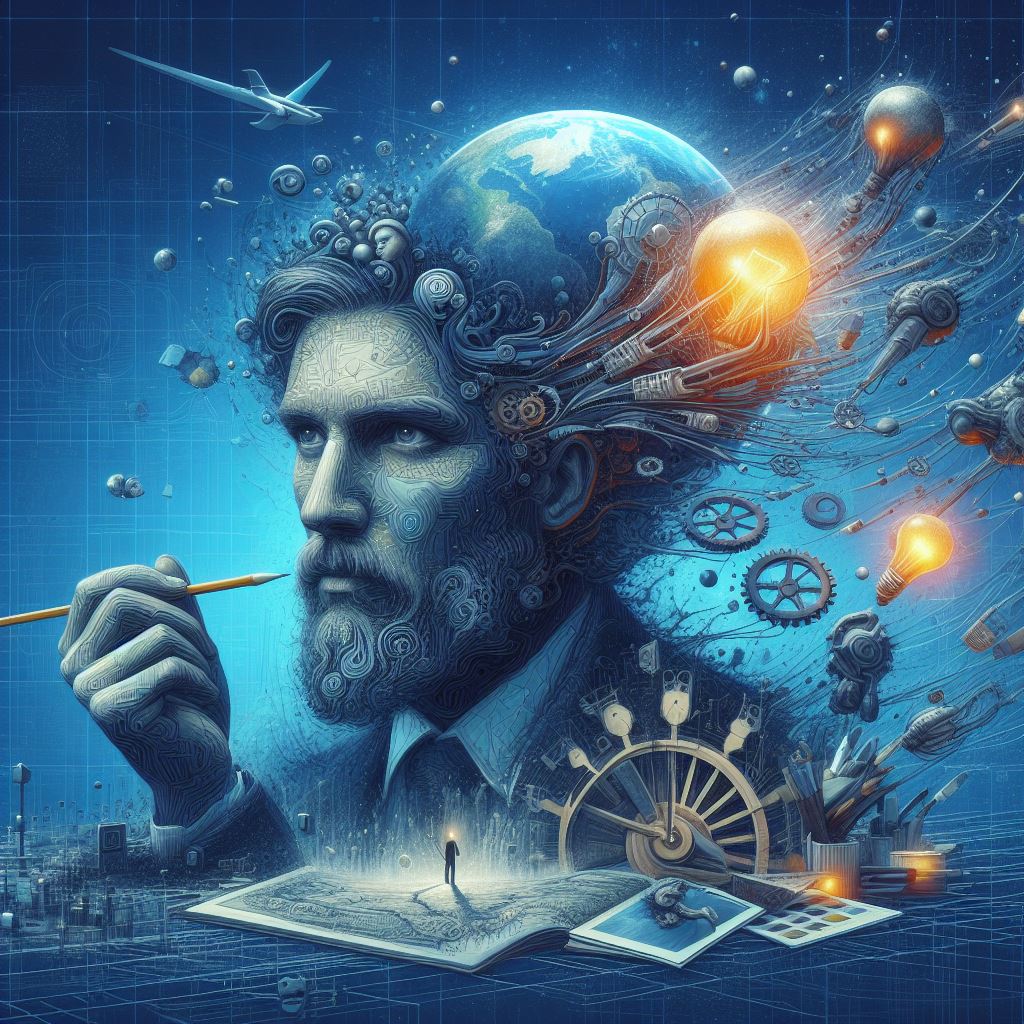New questions are raised every day about whether computational creativity is even possible. As it is considered a unique skill that we humans have, but the advent of tools like ChatGPT, Dall-E, and so many others are now challenging our position.
Large language models (LLMs) use mathematics to evaluate the input and produce a result making its base on the huge amounts of data they are trained on to recognize patterns. But we humans don’t rely on these patterns alone, as our intelligence goes far beyond this level. Another difference is the difference between how humans and AI gain knowledge, as humans rely on causation while AI models rely on correlation.
Last year, music producers like Alex Da Kid collaborated with IBM’s Watson to make some AI hits and inform the creative process. Digging a little more backward, an artwork called The Portrait of Edmond de Belamy, which sold for $432,500 and was also generated with AI, it was created by feeding the system a data set of 15,000 portraits that covered art from six centuries.
AI still needs human intervention
In all these examples, human intervention is still there to curate the AI’s produced results. But now an AI image generator like Midjourney can produce results in seconds for any theme according to your preferences. Huge amounts of datasets are scraped and fed into the systems to train them. Generative AI systems can now convert written phrases into pictures, or they can compose music in the style of a composer of your choice. The outputs do resemble the data these systems are trained on, but they are not exactly the same.
Authorship is a questionable topic in these cases, as many critics are not in favor of giving algorithms a title as authors yet. So who should be considered the author or artist? What about the thousands of artists and painters whose work was scraped to train the AI? Or could it be the prompter? the one who describes the style, subject matter, and many other intricate details of the image. So we are again at a point where we see new problems arising, perhaps for the first time, not for being new but for being unique. The question is: can AI be as creative as humans?
Can AI replace the human creative element?
Experts describe many types of creativity, some of them are transformational, combinational, and exploratory creativity. Speaking of the latter two, exploratory creativity explores structured spaces on a conceptual basis to generate new ideas, while combinational creativity merges together similar ideas.
These types of creativity are quite near to what generative AI algorithms do, for example, creating a story in the same style as many other stories used in the training datasets or creating an image in the same fashion. The first one, transformational creativity, is what it means to come up with new ideas apart from existing structures of data and style to produce something entirely new and original at best.
This is the main focus point of the argument regarding copyright and fair use of content, and an issue not yet addressed by regulations. Recently, SAG-AFTRA secured a deal with record labels for the protection of artist rights and made the right to consent and compensation compulsory.
Computational creativity does not work impulsively in a human way, rather, it works systematically. It can achieve results in unexpected ways, but they are predictable as the system uses a certain process to achieve them. This is the main difference between human artists and AI, as we get only the results we ask for from it. Generative AI works acceptably in partnership with its human counterparts, and its performance will improve, but at this time, it can work as a catalyst to help humans rather than replace them.
Find the original news here.




